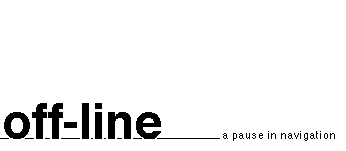Over two years ago (in December, 1998) I wrote
in this column about the poor effects of supposedly
“well meaning” legislation. We were in one of the
“hangover” periods following a “hype”
cycle. After countless over-optimistic estimates and
projections it had become visible (once again) that
“electronic commerce” was not taking off and that
Italy was behind its European counterparts in internet
development. Telecoms, internet providers and other business
interests lobbied for government subsidies and
“incentives”.
Several plans were developed. They were poorly conceived
and would have been either ineffective or harmful. Luckily
they all got lost in the doldrums of parliamentary debate,
political haggling and bureaucracy. There was no support
whatsoever from the government. But things did change.
It happens quite often that periods of hype hide
problems, and periods of disillusionment coincide with the
beginning of a solution. At the end of 1998 (and more clearly in 1999)
there was the beginning of a change – that mainstream media,
public authorities and business circles failed to notice.
Not because of any incentive, or any promotional activity of
service providers, growth of the internet in Italy began to
accelerate. Predominantly at the workplace, but a year later also in homes.
As we stand now, Italy is not at the same level as the UK (and still
far behind Scandinavia and the Netherlands). But it’s catching
up with Germany and ahead of France.
The picture has changed
quite radically in the last two years. This is a strong trend
because it’s not based on any incentives or promotions
but on the attitudes and behaviors of people.
There was another hype cycle, based not on the relevant
facts (such as actual growth of the net) but on the same sort
of speculative “bubble” as in the United States.
Quite predictably, another hangover followed, with widespread
gloom, disappointment and dismay.
There is less talk nowadays about “incentives”
but the government and parliament are still busy trying to
legislate and regulate – and doing it badly.
We are already suffering from bad laws, such as the
poorly conceived regulation on “data protection”
(that generates lots of unnecessary bureaucracy and doesn’t
protect privacy), absurdly restrictive rules on copyright, etcetera.
Just as this article goes into print a clumsily conceived
(and poorly written) law has been issued, which, if interpreted literally,
would make it illegal to publish anything online by anyone who
isn’t a registered publisher or journalist.
There was widespread protest and a government spokesman rushed
to declare that no censorship was intended and there will be no limitation
of “free speech” online. But the legal issue hasn’t
been clarified and its implications remain confusing.
It’s hard to tell if these mistakes in regulation are caused
by ignorance or the influence of censorship-oriented lobbies. Probably
a combination of the two. But the fact is that, once again, legislators
have done a bad job – and it’s unclear if, how and when
the resulting mess will be corrected.



